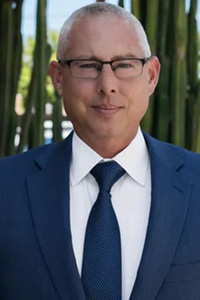Charting a science-based path in health care reform
By Mike Renaud, Guest Commentary //February 19, 2025//
Charting a science-based path in health care reform
By Mike Renaud, Guest Commentary //February 19, 2025//
As the incoming Trump administration unveils its Make America Healthy Again (MAHA) agenda, our nation has an opportunity to reimagine health care. With new leaders set to head the Department of Health and Human Services and the Centers for Medicare & Medicaid Services, bold ideas will take center stage. While the stated goals of expanding access, improving affordability, and reducing bureaucratic barriers align with values that many of us in health care share, this moment calls for both optimism and vigilance.
At Valle del Sol, we have seen firsthand how community-centered, integrated care transforms lives. As a Community Health Center (CHC), we provide care to individuals and families who might otherwise struggle to access essential services. Our experience demonstrates that effective health care reform must be rooted in health accessibility and grounded in science and evidence-based practices
Prevention and Affordability: CHCs Have Led the Way

The MAHA agenda’s focus on prevention and cost reduction is commendable. CHCs have been leading this charge for decades. We don’t just treat illness, we address the root causes of chronic disease, including lifestyle factors, access to healthy food, mental health, and more. Our holistic approach has been proven to improve outcomes while lowering costs, offering a model that could strengthen and inform future health care policies.
Investments in preventative care align with what we already do. Wellness programs, chronic disease management, and behavioral health services have shown that small early interventions yield significant long-term benefits. Expanding on these principles could profoundly reshape health care for the better — but only if reforms remain rooted in evidence and implemented with a person-centered approach.
The Role of Science in Reform
Health care policy is complex, and decisions must be guided by data. While personal responsibility plays a role in health outcomes, systemic barriers cannot be ignored. A policy approach that overemphasizes individual behavior while neglecting social drivers — such as access to nutritious food, stable housing, and quality education — risks deepening existing health disparities rather than addressing them.
At the same time, innovation must be rigorously evaluated. Patients deserve care that is safe, effective, and rooted in science. Rushed policies or poorly designed reforms could erode public trust, particularly in vulnerable communities. A one-size-fits-all approach will not work — health care is local, and solutions must be tailored to regional and community-specific needs.
CHCs as Key Partners in Reform
If, as a nation, we are serious about expanding access and improving outcomes, CHCs should be recognized as essential partners. We have a long history of delivering high-quality care to underserved communities despite limited resources. Our flexibility and innovation make us uniquely positioned to help shape practical policies.
The MAHA agenda presents a critical opportunity to build a healthier nation, but success will require humility, thoughtful implementation, and a steadfast commitment to science. CHCs like Valle del Sol stand ready to work with policymakers to ensure reforms are effective and focused on long-term health improvements.
We urge the administration to engage with those of us who understand the realities of patient care, who see firsthand how policy decisions impact communities, and who are committed to making health care work for everyone.
By prioritizing evidence-based practices and systemic solutions, we can truly Make America Healthy Again — not just in name, but in practice.
Mike Renaud is president & CEO of Valle del Sol, a Community Health Center that serves 11,582 patients annually across 66 locations in the Phoenix metro area.














































